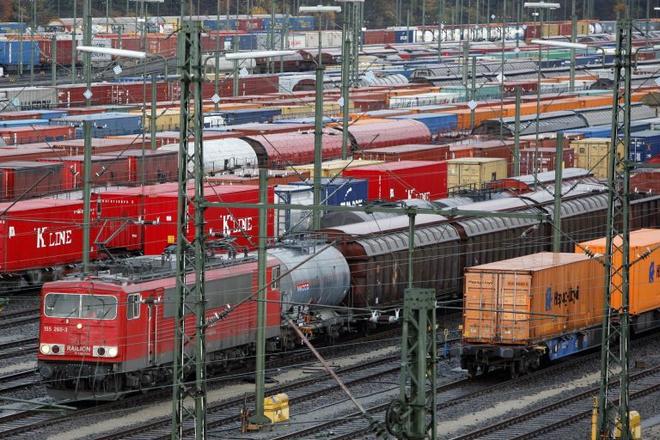NATIONAL railway companies from Russia, Austria, Ukraine, and Slovakia signed a steering committee declaration in late May to keep the project of extending a broad-gauge railway track across all four countries moving forward. The next step is the formal establishment of a joint venture to develop the feasibility study for this project. The declaration was signed on May 29 in Sochi, Russia during the 4th international business forum, Strategic Partnership 1520, the SITA newswire wrote.
The director general of the Russian railway company RZD, Vladimir Yakunin, the director general of the Ukrainian state railway administration, Mikhail Kostuk, a member of the board of directors of the Austrian railway company ÖBB Holding AG, Gustav Poschalko, and the director general of the Slovak railway network operator ŽSR, Štefan Hlinka, are the signatories to the document, said Svetlana Bobrova of RZD.
According to RZD, the objective of the project is to connect the railway system of central Europe with regions through which the Trans-Siberian railway passes with the aim to attract cargo transport on this route connecting Asia and central Europe via Russia and to increase the competitiveness of railway transport vis-a-vis marine transport and highway transport.
The broad-gauge railway track should be extended from Košice in eastern Slovakia to Bratislava and then on to Vienna. On April 4, 2008 the railway companies from Russia, Austria, Slovakia and Ukraine signed the first protocol to start pre-project studies on extension of the track into central Europe. Costs of the project are estimated at $4-5 billion.
In May of this year, the Slovak cabinet granted ŽSR an exception enabling it to make a deposit of €1.5 million into the joint venture with the Russian, Ukrainian and Austrian railway companies. This joint venture, ÖBB-Breitspur Planungsgesellschaft, is based in Vienna. ŽSR will also receive a subsidy of €25,000 from state financial assets to acquire its initial stake in the joint venture.
Each of the four companies will initially deposit €25,000 into the joint venture and later each of them is expected to increase their share assets by an additional €1.5 million.
The initial capital that the four partners will deposit in the joint venture will cover the costs of the feasibility study and evaluation of possible financing for the project. The feasibility study should be completed by the end of this year at the latest, though it was originally planned for June. The delay in finishing the document was caused by certain problems concerning the establishment of the joint venture under Austrian law as well as late deposits of the initial share capital by the partners.
The plan is to start building the track in 2011 and to complete it in six years.



 Railways are a promising means of transport. (source: ČTK)
Railways are a promising means of transport. (source: ČTK)